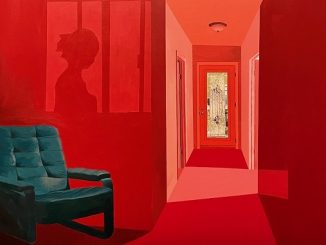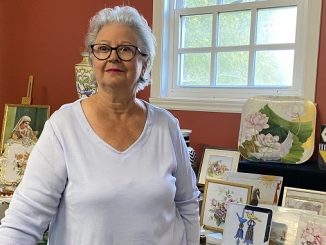Joliz Dela Peña carries the weight of the revolution in her performances. Pushing experiences of migration, imperialism and colonialism through the body and its hardened limbs with domestic tasks, she draws from her embodied memories of migrating from the Philippines. Her participatory movements illuminate diasporic intimacies in the settler-colonial state, attaching emotional responses to microaggressions and fetishization experienced every day. Her performances place these experiences in the body, asking viewers to reflect on their part in colonial systems.
In her latest, she connects land to tasks of resistance: ongoing, repetitive and necessary. The audience participated in the act of washing clothes that subtly bore the words of Chad Booc, an activist killed by Philippines state forces. “When I die, I don’t want to be buried. I want to be planted.” As she washed and hung them on the clothesline to be reverently read, floral-scented water dripped into plant pots, growing slowly, silently and continuously. Audience members rose and mounted flags of occupied nations, chanting words of resistance. Joliz shed her natural Filipiniana gown, Terno sleeves shaping the colonial history of the Philippines, and pinned it to spray paint: “We will not be silenced.” asking viewers to question complicity in times of revolt.
-Written by Jules De Guzman, artist and Anakbayan comrade
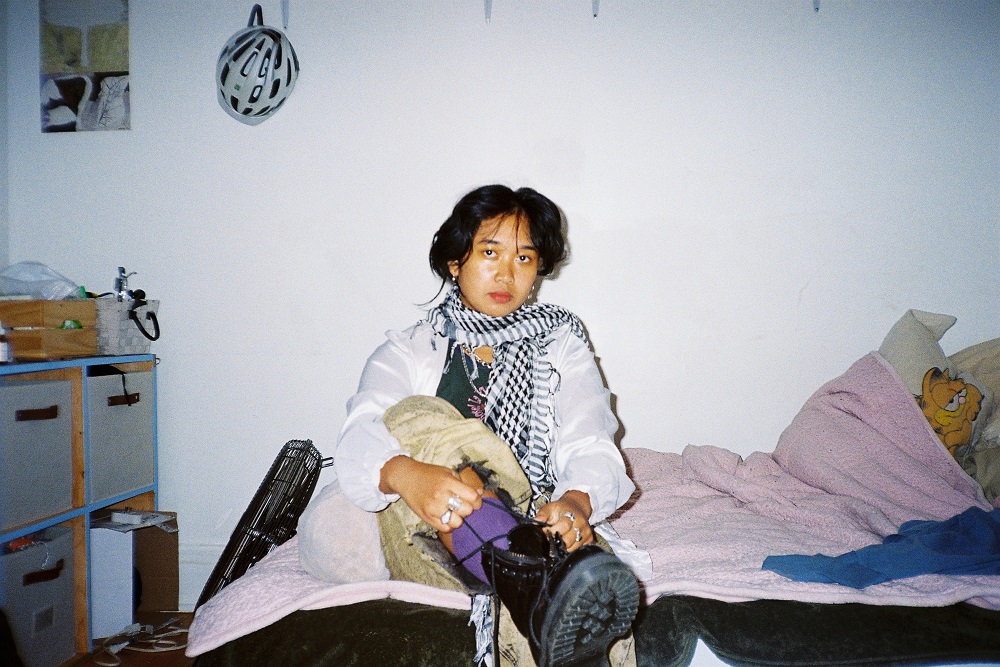
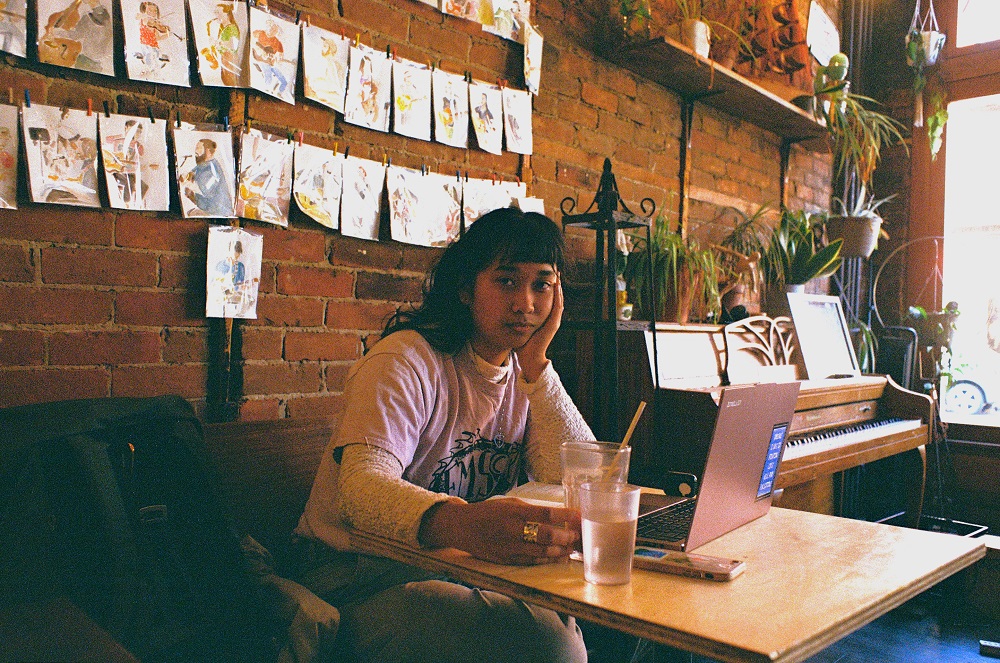
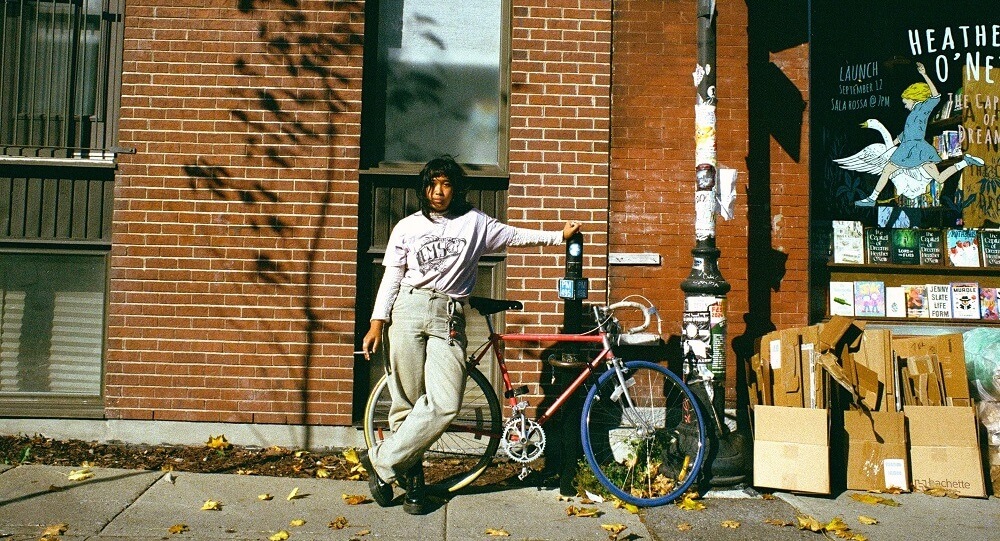
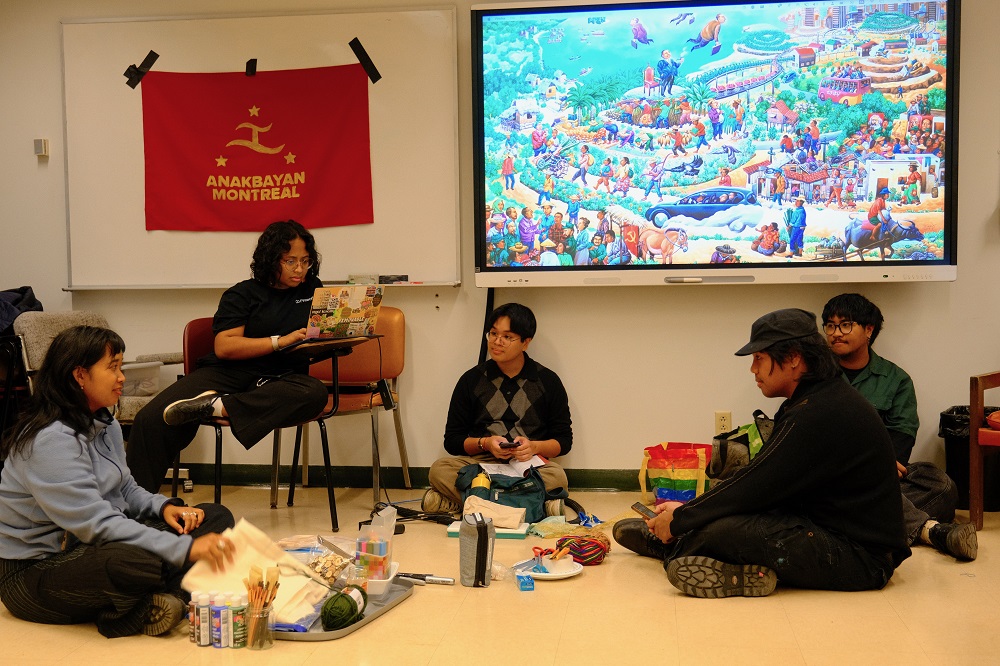
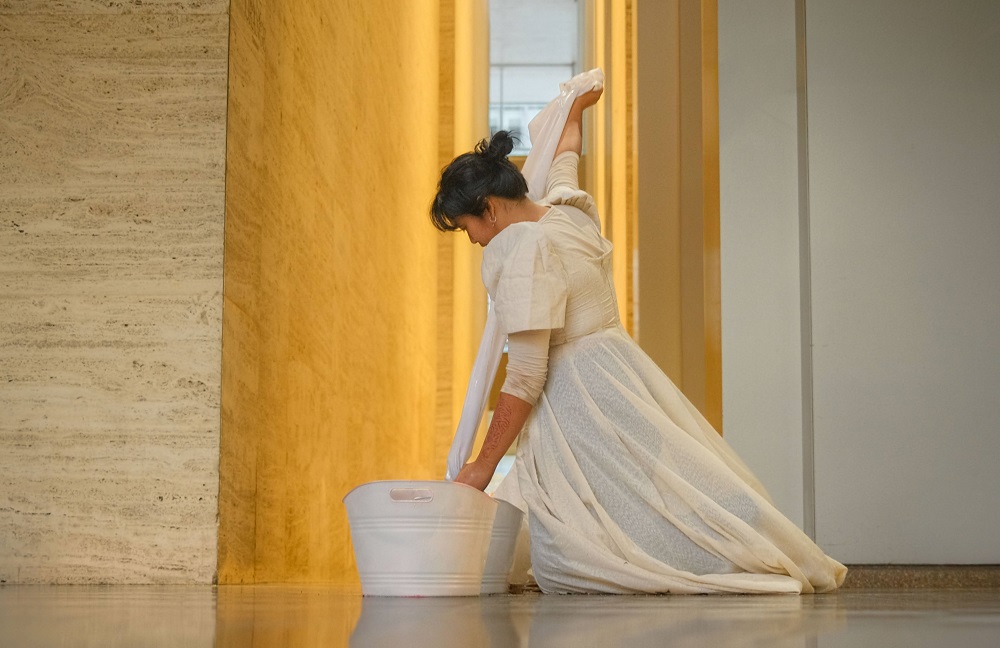
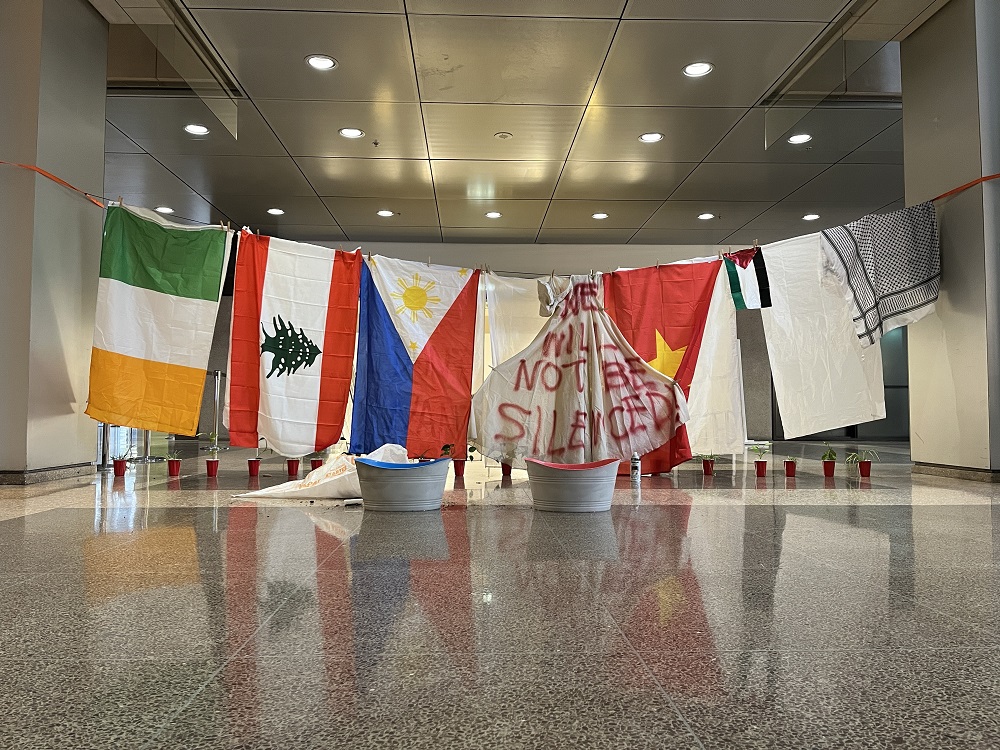
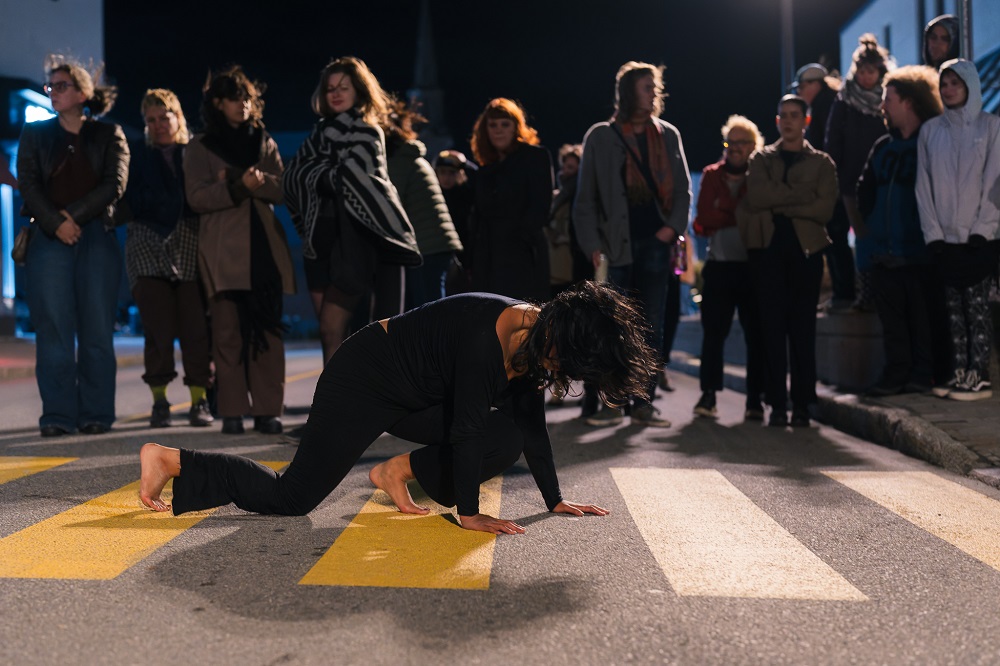
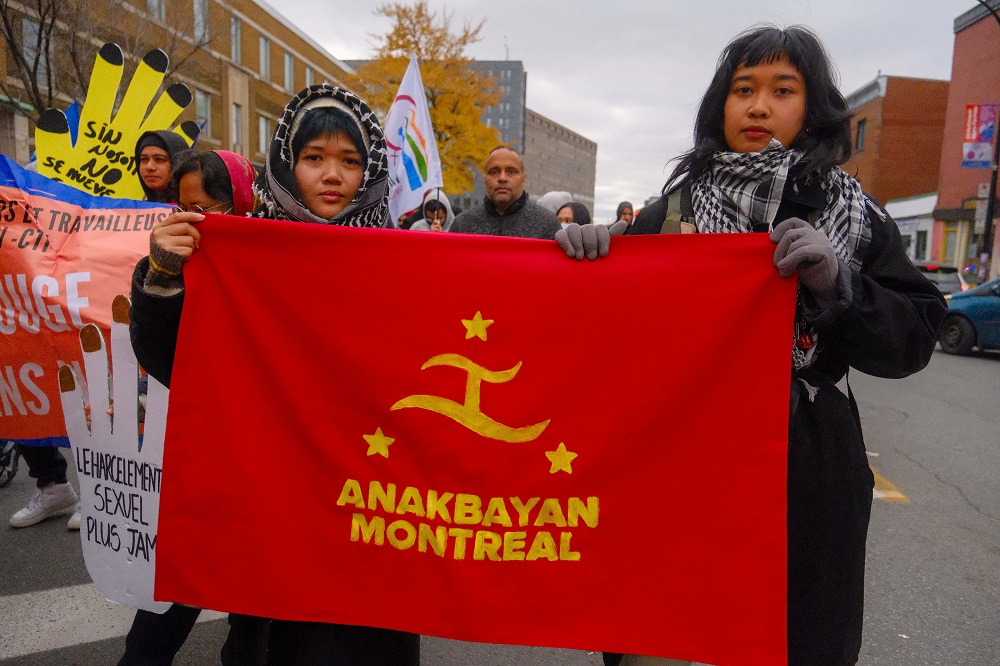
***
Which neighbourhood are you in?
I am currently on the cusp of Mile End and Outremont. I actually recently moved (unfortunately through forced displacement) to this neighbourhood. I lived in Mile End for nearly 3 years… I still go to my usual coffee shop in Bernard (pictured). There’s something about people watching in the staircase of my old building, diverse demographic and a younger population. Definitely class hierarchies are mixed, but Outremont has more bougie folks, which makes me feel alienated at times.
What do you do?
I am an interdisciplinary artist with a focus on performance art, as well as a cultural worker and member of a radical youth organization called Anakbayan Montreal (Youth of the Nation). My performances often address the struggles of the masses, particularly marginalized immigrants and migrant workers in Canada.
As both an artist and a youth activist, it’s impossible for me not to weave these roles together. Since immigrating to Quebec, I have continuously questioned the structures of a predominantly white system and the root causes of our immigration from our home country. There is so much to unpack and share, and being part of the arts and culture scene allows me to use my platform to discuss these challenging subjects and uncomfortable dialogues. Yet, many art institutions remain complicit in silencing these unheard stories. I have often been the token BIPOC artist in various art spaces and festival programs. One of my recent interventions, activated by both myself and the public, took place on October 20th at the ARTCH Festival on the grounds of Place Ville Marie. The intervention was prompted by Place Ville Marie’s censorship of my political expression and support for Palestine and Lebanon.
What are you currently working on?
I am currently working on a variety of projects! These include actions and activities with Anakbayan, such as educational discussions, teach-ins, and art-building workshops. In addition, I have two upcoming performance shows—one in Montreal at the end of November and another in Quebec City during the first weekend of December.
The concept for my new performance is a response and commentary on the new immigration law in Quebec. This law is particularly relevant as it significantly impacts migrant workers and international students, groups who already face considerable challenges. My intention is for the performance to serve as a call to question the structures that create and sustain these inequities.
Where can we find your work?
I post regularly on my Instagram and do a monthly newsletter on my website!

